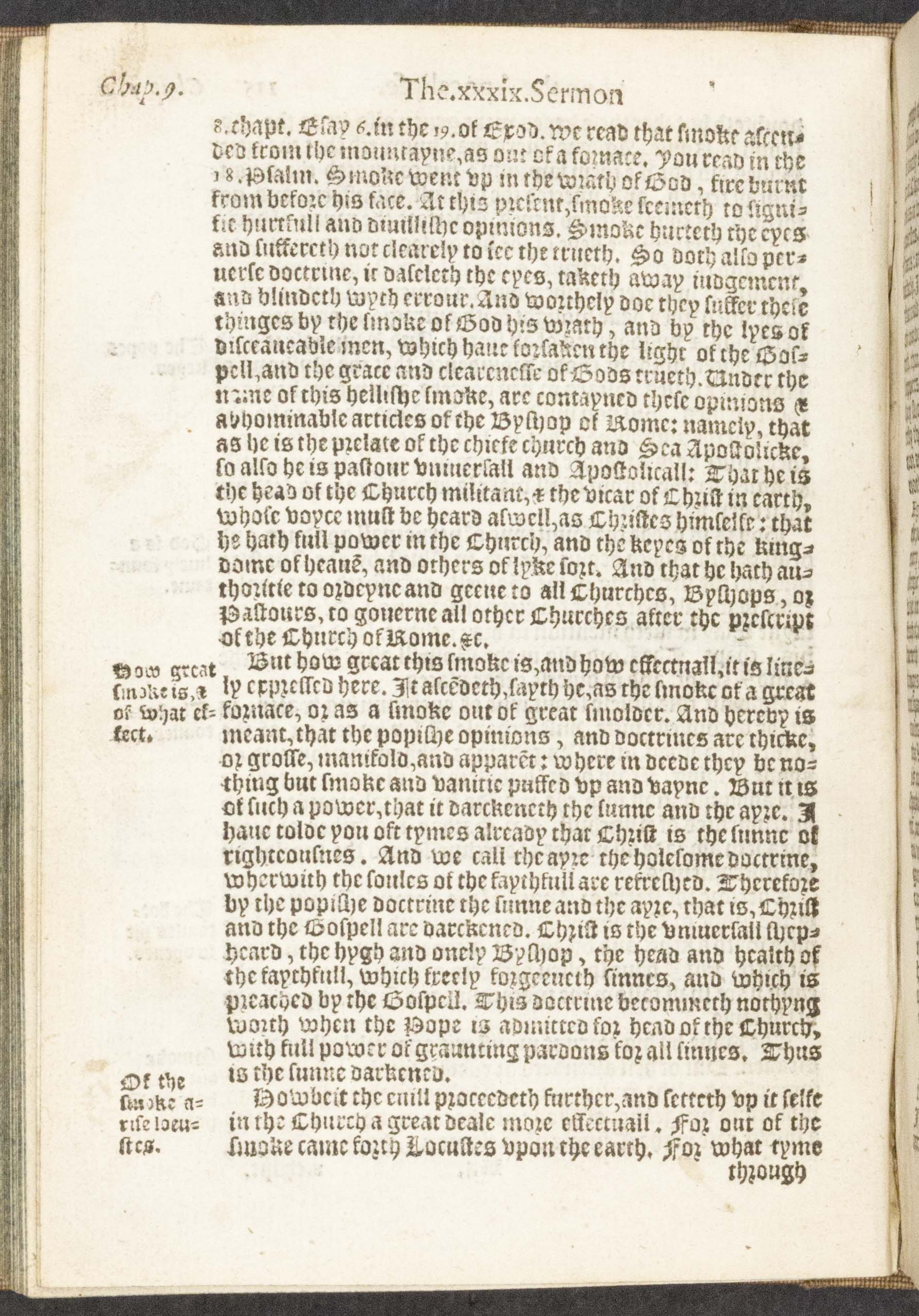
London: J. Day, 1573
G9.3 [Revelation] SR
The Swiss reformer Heinrich Bullinger (1504-1576) followed in the traditions of Ulrich Zwingli and John Calvin. His influence extended throughout Europe. In England, he corresponded with Henry VIII, Edward VI, Elizabeth I and Lady Jane Grey; Archbishop Whitgift ordered all ministerial candidates who lacked a theological education to read a portion of Bullinger’s theological handbook The Decades each week and make notes from it; about fifty editions of Bullinger’s works appeared (mostly in English) between 1538 and 1587; and Bullinger’s death was mourned as a calamity. His literary output was vast; his sermons were noted for being biblical, clear, and practical. The sermon was a characteristic form of Protestant communication, seen as a key feature in bringing the faithful to salvation, with an estimated 1,000 titles printed in the years 1558-1603. Series of sermons expounding entire chapters or books of the Bible, verse by verse, as shown here, were a Reformation phenomenon. Bullinger was the first major reformer to write what amounted to a commentary on the book of Revelation (based on sermons previously delivered orally, and published in German in 1558 before appearing in English in 1561), spurred to do so by Mary Tudor’s accession to the English throne.